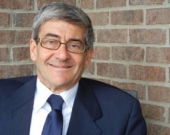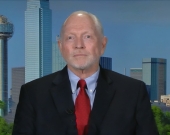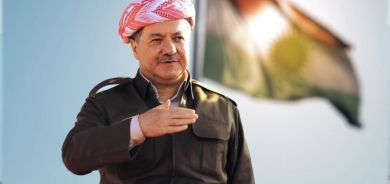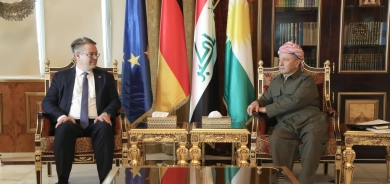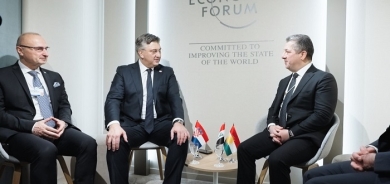Gulan Media Exclusive: Professor Caplan on Russia-Ukraine War & Europe's Dynamics

Richard Caplan is a Professor of International Relations and an Official Fellow of Linacre College. His expertise lies in international organizations, conflict management, peacekeeping, and post-conflict peace-building. He has authored and edited multiple books on these topics and is involved in various research projects funded by prestigious institutions.
In this interview with Gulan Media, Professor Richard Caplan, an expert in international relations, discusses the ongoing war between Russia and Ukraine and its implications for Europe and the world. He also provides insights into the management of the conflict by NATO and the West, Germany's changing role in the continent, and the challenges of state-building in conflict-affected regions. Additionally, he touches upon the situation in the Kurdistan Region and the prospects for peace in the Middle East. Lastly, he reflects on the potential need for reform within the United Nations amid the evolving global landscape.
Gulan Media: The war between Russia and Ukraine is the biggest war in Europe since the end of World War II. There is no prospect of how this war will end because Russia does not implement what the West and NATO demand. What changes do you think this war will bring to Europe and the world?
Professor Richard Caplan: The war has already brought significant changes. Since Russia’s military operations began, we have seen a dramatic increase in bilateral military and other assistance to Ukraine, with many allies supplying lethal weapons for the first time. For some countries such as Germany, and historically neutral countries such as Sweden, this represents a significant reversal of their previous policies, which ruled out providing offensive weapons. The war has also led Sweden and Finland to join NATO, and prompted NATO to reaffirm that Ukraine will (at an unspecified point) become a member of NATO. More broadly, the war has made apparent the need to re-think the future of the European – and the global -- security architecture.
Gulan Media: So far, NATO and the West's strategy for this war is to defeat the Russian army inside Ukraine, and NATO and the Russian army do not confront each other directly. As a crisis management expert, how do you view the West and NATO's management of the wars in Russia and Ukraine?
Professor Richard Caplan: NATO and the West have been very careful to avoid direct confrontation with Russia, although there is always a risk that Russia will interpret Western actions – e.g., the provision of lethal weapons, intelligence sharing – as forms of direct engagement. To date, NATO and the West have been clear about their strategic goals, and the limits of those goals, in an effort to reassure Russia that it does not pose a threat to Russia. What is lacking is greater diplomatic effort. While a negotiated settlement may not yet be visible on the horizon, I see scope for some limited agreements to manage the conflict in the interest of both parties – for example, by taking measures to safeguard the four functioning nuclear power plants in Ukraine, around which military activity could have disastrous consequences for the people and the environment not only of Ukraine but also of Russia and the wider region.
"The war has made apparent the need to re-think the future of the European – and the global -- security architecture." - Professor Richard Caplan
Gulan Media: Germany under Olaf Scholz is entering a new era. Now Germany wants to lead the whole continent by renewing its army and allocating a large budget for its army Will he succeed in trying?
Professor Richard Caplan: I am not an expert on German politics so I am not able to provide any insights into Scholz’s prospects for success. However, it is worth pointing out that already Scholz has made significant strides: in a reversal of Germany’s longstanding policy, he has allowed for the export of lethal weapons to Ukraine. He has also committed Germany to meeting NATO's military spending target (2% of annual GDP) for the first time in decades, although we will have to see if he is able to deliver on his pledge. Some observers maintain that domestic constraints on Germany’s defence and security policies mean that Germany’s role as a military actor is unlikely to change fundamentally.
Gulan Media: You have a book entitled "Europe and the Recognition of New States in Yugoslavia" This book was written after the partition of Yugoslavia, the Kosovo war and the disappearance of Milosevic Will the same scenario of Yugoslavia be repeated in Ukraine?
Professor Richard Caplan: The difference between Yugoslavia and Ukraine is that Yugoslavia was judged to be ‘in the process of dissolution’ because the majority of its constituent members (the republics) had expressed their desire for independence. It is widely accepted that Ukraine, by contrast, is a victim of aggression. While the international community recognized the sovereign independence of the former Yugoslav republics, only a handful of states have recognized the annexation of Ukrainian territories occupied by Russia. What I fear instead is that the current crisis in Ukraine will produce another ‘frozen conflict’ similar to what prevails currently in Transnistria (Moldova), Abkhasia and South Ossetia (Georgia), Nagorno-Karabakh (Azerbaijan), and Cyprus, among other situations in which armed conflict has come to an end but there has been no resolution of the conflict and the territories remain divided.
Gulan Media: The Kurdistan Region in the Iraqi state is a post-crisis, disaster and genocide region, and the international community is preventing this region from becoming an independent state like the regions of the former Yugoslavia. How can a nation that has been genocided live with a state that is still unwilling to acknowledge the crimes it has committed against it?
Professor Richard Caplan: What you describe are conditions similar to those that have led many countries to support the independence of Kosovo, an autonomous province within Serbia. In the 1990s Kosovar Albanians, too, had suffered mass atrocity crimes perpetrated by Serbian (and Yugoslav) authorities. The difference is that those crimes, and the threat of a humanitarian catastrophe, prompted a military intervention by NATO member-states in 1999 which led to the forced withdrawal of Serbian (and Yugoslav) authorities, the subsequent administration of the territory by the United Nations, and ultimately independence for Kosovo—although not all states recognize the sovereign statehood of Kosovo and it has not been admitted to the United Nations. The winds of global politics have favoured Kosovo; Kurdistan has not been as fortunate.
"The current crisis represents an assault on the fundamental principles of the United Nations—sovereignty, territorial integrity, and the prohibition on the use of force—and those principles can only be sustained with the voluntary support of the world’s major powers." - Professor Richard Caplan
Gulan Media: As an expert, you attach great importance to peace and state building. This is a very difficult issue for the whole world. We in the Middle East never believe that peace can be established in this region , In your opinion how can peace and a state be built in which citizens feel prosperous?
Professor Richard Caplan: There are many factors that militate against peace and prosperity in the Middle East and they are not easily overcome. Repressive, authoritarian regimes are in place throughout the region, some of them supported by mineral (oil) wealth, some of them supported by external allies. Many of the affected communities—e.g., in Palestine, Lebanon, and Iraq—are also divided amongst themselves, which ruling parties are able to exploit to their advantage. There is no easy solution to the challenges to peace and prosperity which these people face. However, there have been triumphs elsewhere, notably East Timor (Timor-Leste) under Indonesian occupation, South Africa under apartheid, Kosovo under Serbian hegemony. These have been hard-won struggles but they demonstrate that it is possible to achieve peace and freedom in very challenging circumstances.
Gulan Media: As an expert in international relations, you know that international relations are at their worst today and the world is moving towards a bad multipolarity. Even Putin wants the current international system to disappear and be replaced by a multipolar system. Do you expect the UN to change dramatically?
Professor Richard Caplan: The United Nations is a very conservative organization constitutionally speaking. Amendments to the UN Charter require the support of two-thirds of the members of the General Assembly including all the permanent members of the Security Council. As a consequence, reform is very difficult to achieve. There is scope for innovation without recourse to formal Charter reform. UN peacekeeping is an example. It is one of the major instruments for UN conflict management and yet there is no mention of it in the UN Charter. However, the current crisis represents an assault on the fundamental principles of the United Nations—sovereignty, territorial integrity, and the prohibition on the use of force—and those principles can only be sustained with the voluntary support of the world’s major powers. If that support is lacking and those principles are compromised, it is difficult to see on what basis the United Nations can maintain international peace and security.







